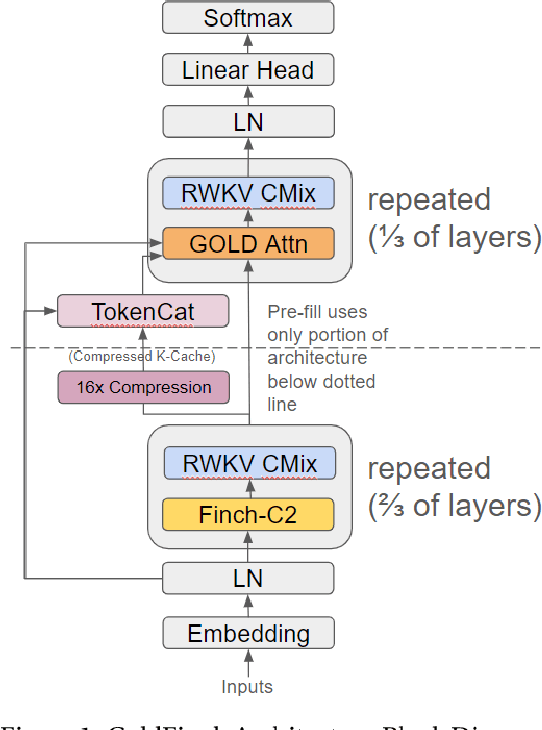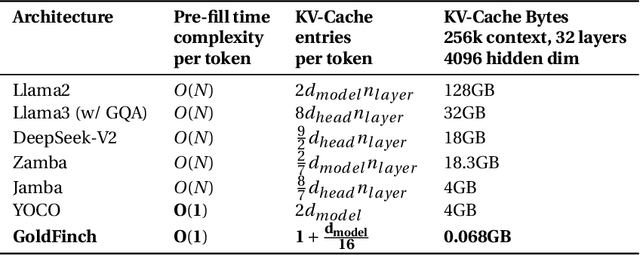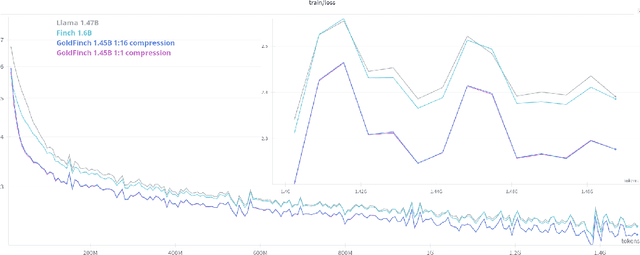Guangyu Song
The Common Pile v0.1: An 8TB Dataset of Public Domain and Openly Licensed Text
Jun 05, 2025Abstract:Large language models (LLMs) are typically trained on enormous quantities of unlicensed text, a practice that has led to scrutiny due to possible intellectual property infringement and ethical concerns. Training LLMs on openly licensed text presents a first step towards addressing these issues, but prior data collection efforts have yielded datasets too small or low-quality to produce performant LLMs. To address this gap, we collect, curate, and release the Common Pile v0.1, an eight terabyte collection of openly licensed text designed for LLM pretraining. The Common Pile comprises content from 30 sources that span diverse domains including research papers, code, books, encyclopedias, educational materials, audio transcripts, and more. Crucially, we validate our efforts by training two 7 billion parameter LLMs on text from the Common Pile: Comma v0.1-1T and Comma v0.1-2T, trained on 1 and 2 trillion tokens respectively. Both models attain competitive performance to LLMs trained on unlicensed text with similar computational budgets, such as Llama 1 and 2 7B. In addition to releasing the Common Pile v0.1 itself, we also release the code used in its creation as well as the training mixture and checkpoints for the Comma v0.1 models.
RWKV-7 "Goose" with Expressive Dynamic State Evolution
Mar 18, 2025Abstract:We present RWKV-7 "Goose", a new sequence modeling architecture, along with pre-trained language models that establish a new state-of-the-art in downstream performance at the 3 billion parameter scale on multilingual tasks, and match current SoTA English language performance despite being trained on dramatically fewer tokens than other top 3B models. Nevertheless, RWKV-7 models require only constant memory usage and constant inference time per token. RWKV-7 introduces a newly generalized formulation of the delta rule with vector-valued gating and in-context learning rates, as well as a relaxed value replacement rule. We show that RWKV-7 can perform state tracking and recognize all regular languages, while retaining parallelizability of training. This exceeds the capabilities of Transformers under standard complexity conjectures, which are limited to $\mathsf{TC}^0$. To demonstrate RWKV-7's language modeling capability, we also present an extended open source 3.1 trillion token multilingual corpus, and train four RWKV-7 models ranging from 0.19 billion to 2.9 billion parameters on this dataset. To foster openness, reproduction, and adoption, we release our models and dataset component listing at https://huggingface.co/RWKV, and our training and inference code at https://github.com/RWKV/RWKV-LM all under the Apache 2.0 License.
MMTEB: Massive Multilingual Text Embedding Benchmark
Feb 19, 2025Abstract:Text embeddings are typically evaluated on a limited set of tasks, which are constrained by language, domain, and task diversity. To address these limitations and provide a more comprehensive evaluation, we introduce the Massive Multilingual Text Embedding Benchmark (MMTEB) - a large-scale, community-driven expansion of MTEB, covering over 500 quality-controlled evaluation tasks across 250+ languages. MMTEB includes a diverse set of challenging, novel tasks such as instruction following, long-document retrieval, and code retrieval, representing the largest multilingual collection of evaluation tasks for embedding models to date. Using this collection, we develop several highly multilingual benchmarks, which we use to evaluate a representative set of models. We find that while large language models (LLMs) with billions of parameters can achieve state-of-the-art performance on certain language subsets and task categories, the best-performing publicly available model is multilingual-e5-large-instruct with only 560 million parameters. To facilitate accessibility and reduce computational cost, we introduce a novel downsampling method based on inter-task correlation, ensuring a diverse selection while preserving relative model rankings. Furthermore, we optimize tasks such as retrieval by sampling hard negatives, creating smaller but effective splits. These optimizations allow us to introduce benchmarks that drastically reduce computational demands. For instance, our newly introduced zero-shot English benchmark maintains a ranking order similar to the full-scale version but at a fraction of the computational cost.
GoldFinch: High Performance RWKV/Transformer Hybrid with Linear Pre-Fill and Extreme KV-Cache Compression
Jul 16, 2024



Abstract:We introduce GoldFinch, a hybrid Linear Attention/Transformer sequence model that uses a new technique to efficiently generate a highly compressed and reusable KV-Cache in linear time and space with respect to sequence length. GoldFinch stacks our new GOLD transformer on top of an enhanced version of the Finch (RWKV-6) architecture. We train up to 1.5B parameter class models of the Finch, Llama, and GoldFinch architectures, and find dramatically improved modeling performance relative to both Finch and Llama. Our cache size savings increase linearly with model layer count, ranging from 756-2550 times smaller than the traditional transformer cache for common sizes, enabling inference of extremely large context lengths even on limited hardware. Although autoregressive generation has O(n) time complexity per token because of attention, pre-fill computation of the entire initial cache state for a submitted context costs only O(1) time per token due to the use of a recurrent neural network (RNN) to generate this cache. We release our trained weights and training code under the Apache 2.0 license for community use.
Eagle and Finch: RWKV with Matrix-Valued States and Dynamic Recurrence
Apr 10, 2024



Abstract:We present Eagle (RWKV-5) and Finch (RWKV-6), sequence models improving upon the RWKV (RWKV-4) architecture. Our architectural design advancements include multi-headed matrix-valued states and a dynamic recurrence mechanism that improve expressivity while maintaining the inference efficiency characteristics of RNNs. We introduce a new multilingual corpus with 1.12 trillion tokens and a fast tokenizer based on greedy matching for enhanced multilinguality. We trained four Eagle models, ranging from 0.46 to 7.5 billion parameters, and two Finch models with 1.6 and 3.1 billion parameters and find that they achieve competitive performance across a wide variety of benchmarks. We release all our models on HuggingFace under the Apache 2.0 license. Models at: https://huggingface.co/RWKV Training code at: https://github.com/RWKV/RWKV-LM Inference code at: https://github.com/RWKV/ChatRWKV Time-parallel training code at: https://github.com/RWKV/RWKV-infctx-trainer
 Add to Chrome
Add to Chrome Add to Firefox
Add to Firefox Add to Edge
Add to Edge